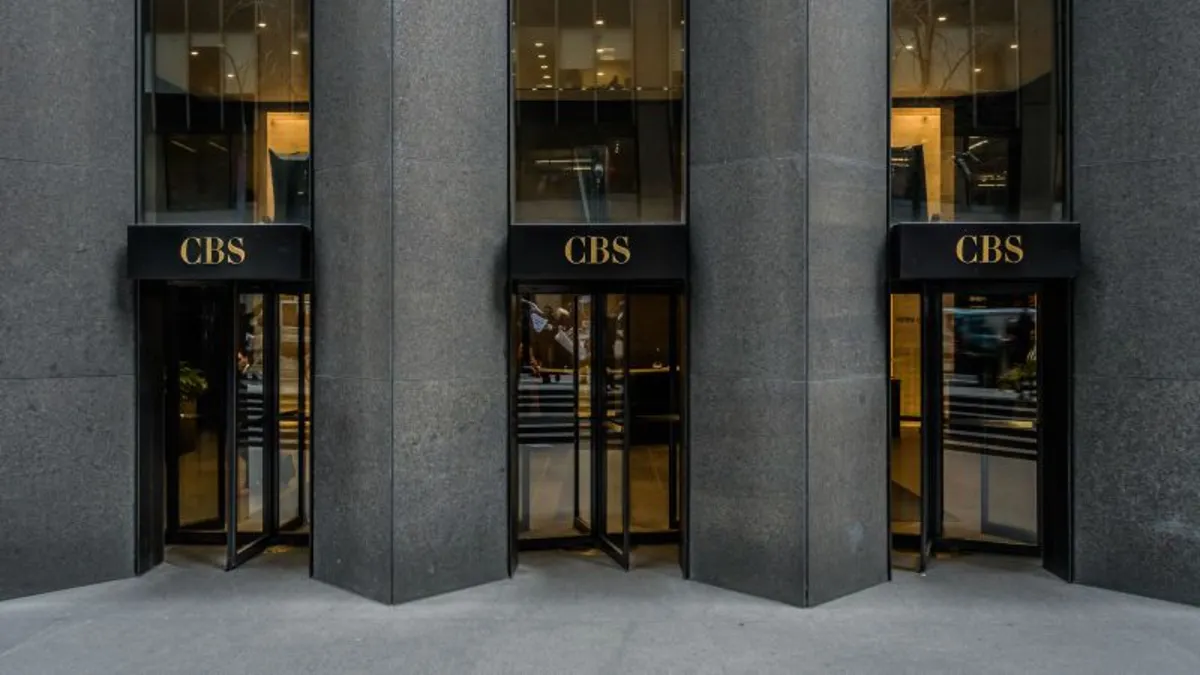
Paramount Global is currently under fire for succumbing to presidential pressure and settling a lawsuit that many believe it could have successfully defended in court. However, this complicated situation appears to be more about the plaintiff, President Trump, than about the media company itself. Veteran journalism professor Al Tompkins expressed concern, stating, “It is odd to call this a ‘settlement’ when the result of it is so unsettling.” Employees at CBS News, producers of the renowned program “60 Minutes,” share similar sentiments, indicating a prevailing atmosphere of fear regarding future repercussions. A CBS News staffer, speaking anonymously, conveyed to CNN, “There is great fear about what comes next.”
Although Trump’s lawsuit against “60 Minutes” is now resolved, his intimidating tactics are likely to persist as a challenge for media companies in the foreseeable future. The Foundation for Individual Rights and Expression echoed this sentiment, stating, “Behavior that gets rewarded gets repeated.” They warned that this settlement may embolden the president to continue launching baseless lawsuits against the press, undermining the American public's ability to access news free from government interference.
For newsrooms and organizations targeted by Trump, the dilemma remains: should they fight or fold? A follow-up question looms: How do audiences perceive media outlets that choose to capitulate? When Trump initially sued CBS last fall, Rebecca Tushnet, the Frank Stanton professor of First Amendment law at Harvard Law School, referred to the lawsuit as “ridiculous junk and should be mocked.” Following the settlement, Tushnet expressed disappointment, emphasizing that in an authoritarian environment, the individual tendency is to capitulate. “It’s disappointing that so many of our institutions are folding, especially when individual citizens can see very clearly the dangers of this path,” she remarked.
Many CBS staffers share Tushnet's disappointment. Former CBS News correspondent Armen Keteyian took to social media platform X to express, “This Paramount settlement is the nadir for the network — a breach of the public trust that Murrow, Cronkite, Hewitt, and thousands of us worked decades to build.” This sentiment was echoed by Democratic lawmakers, including Sen. Elizabeth Warren, who described the settlement as “bribery in plain sight,” while Sen. Ron Wyden condemned the “corporate execs who sold out our democracy,” promising action when Democrats reclaim power.
The bribery allegations stem from Paramount's ongoing efforts to secure approval for its merger with Skydance Media. While Paramount insists that the settlement is unrelated to the Federal Communications Commission (FCC) merger review process, Trump has publicly connected the lawsuit to the merger delays. On June 18, he commented on the lawsuit while discussing the merger, indicating a potential link between the two issues.
Under the terms of the settlement announced late Tuesday, Trump will dismiss the lawsuit in exchange for $16 million allocated toward his presidential library. This financial arrangement mirrors a previous deal made by Disney’s ABC with Trump last December. Jameel Jaffer, executive director of the Knight First Amendment Institute at Columbia University, remarked, “Trump’s presidential library will be a permanent monument to Paramount’s surrender.” Other advocates for press freedom criticized the decision as “spineless” and “shameful.”
Veteran media reporter Paul Farhi noted the disproportionate criticism directed at Paramount, stating, “It’s fascinating how Paramount has borne the bulk of the criticism for agreeing to this payoff, as if Trump is a passive bystander who played no role.” Meanwhile, the conservative editorial board of the Wall Street Journal, owned by Rupert Murdoch, condemned Trump’s actions, stating, “The President is using government to intimidate news outlets that publish stories he doesn’t like. It’s a low move in a free country with a free press.”
While Trump has yet to make personal comments regarding the settlement, a spokesperson for his legal team framed the deal as a means of holding “the Fake News media accountable for their wrongdoing and deceit.” However, the supposed “wrongdoing” stemmed from an edit to a “60 Minutes” interview with then-Vice President Kamala Harris. Trump’s focus on editing decisions, which are typically protected under the First Amendment, appears to be an attempt to manipulate public perception.
Tompkins emphasized the importance of transparency in journalism, stating that news organizations should clarify their editorial processes. Although CBS initially resisted calls to release the full transcript of the Harris interview, they eventually complied amid increasing political pressure. The released tapes underscored the weak legal standing of Trump’s case, but the lawsuit provided him leverage over Paramount and potentially Skydance, the future owner of CBS.
As Paramount navigates this challenging landscape, questions linger about how David Ellison, son of billionaire Larry Ellison, might influence CBS News after the merger. While journalists at “60 Minutes” and CBS News express concern about the implications of the settlement, they ultimately aim to refocus on their core mission. Tompkins concluded, “This settlement is not a reflection on the essential and bold work of 60 Minutes of CBS. It is a reflection of a vindictive president and corporate heads who did not value one of the fundamental principles that underpin the ownership of a news organization.”